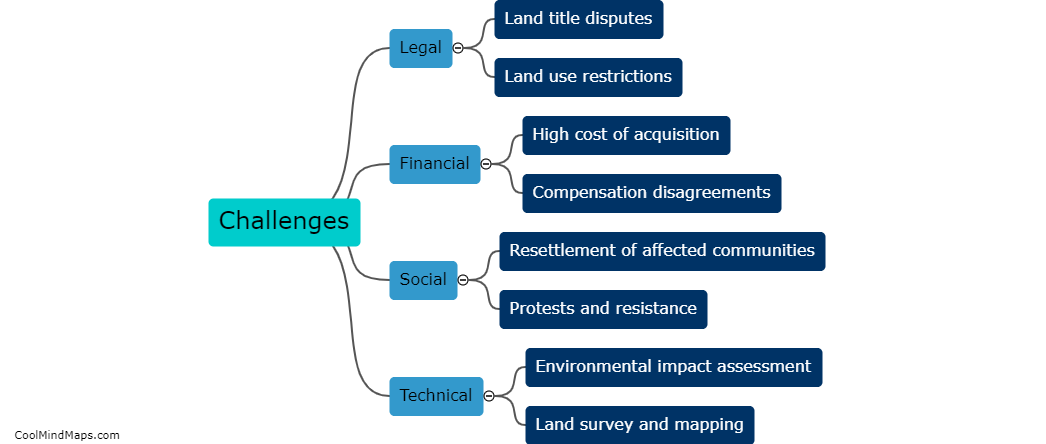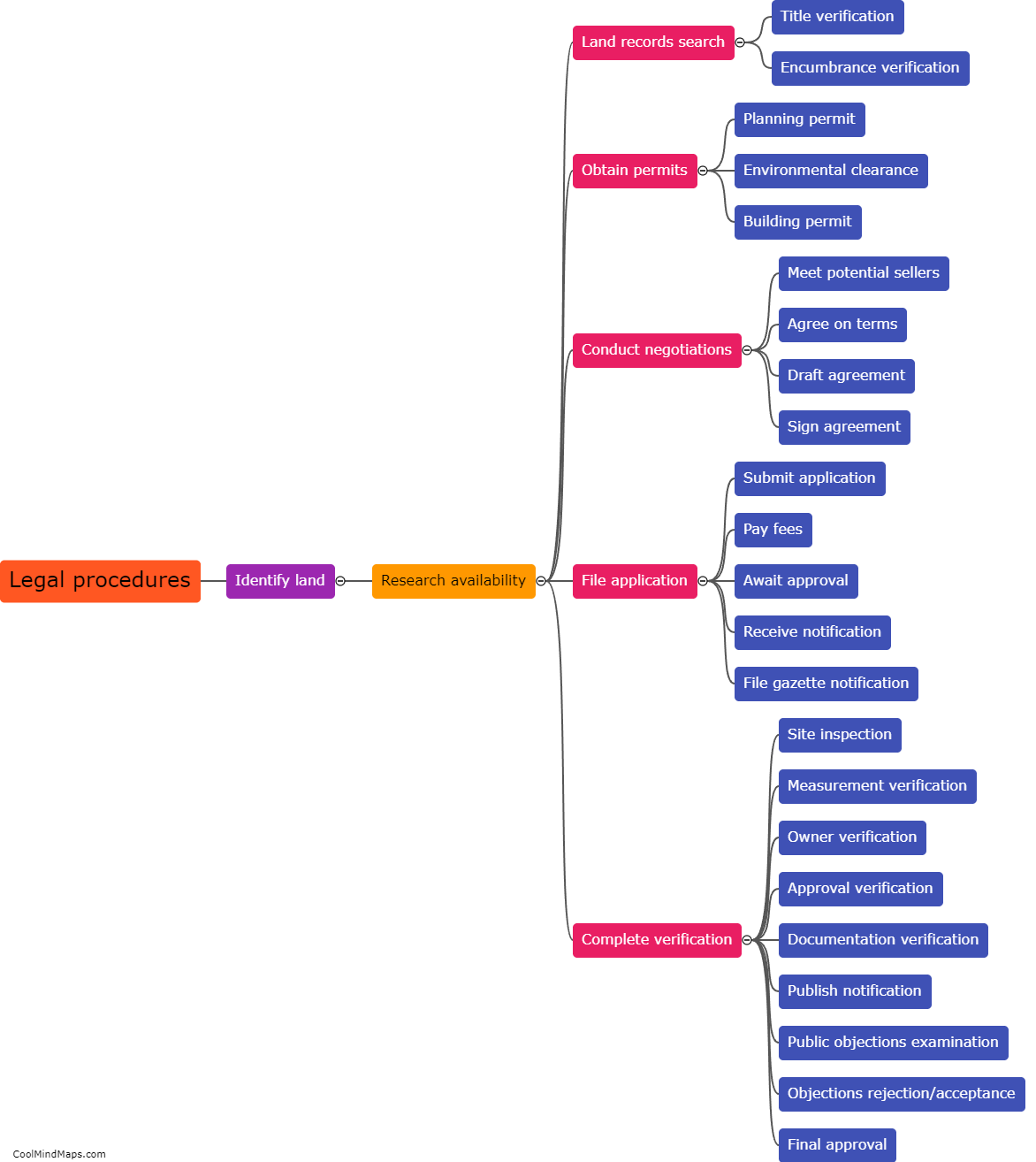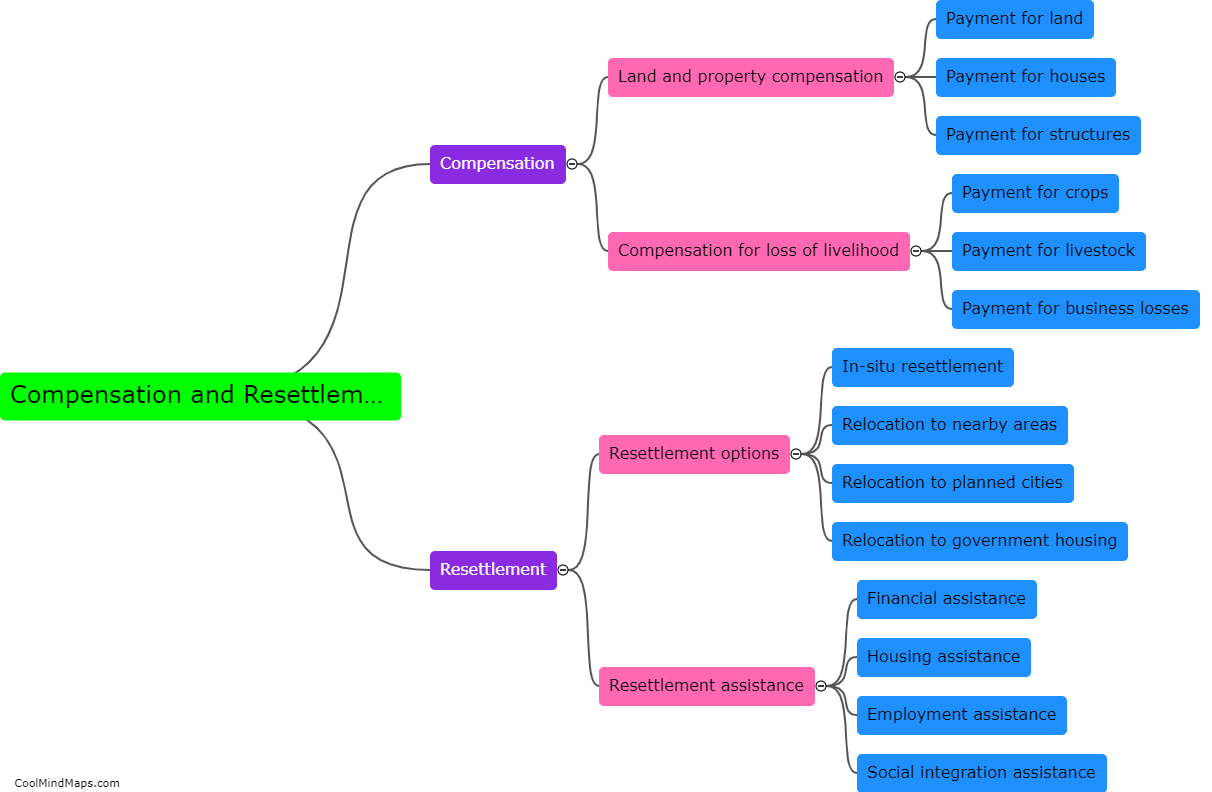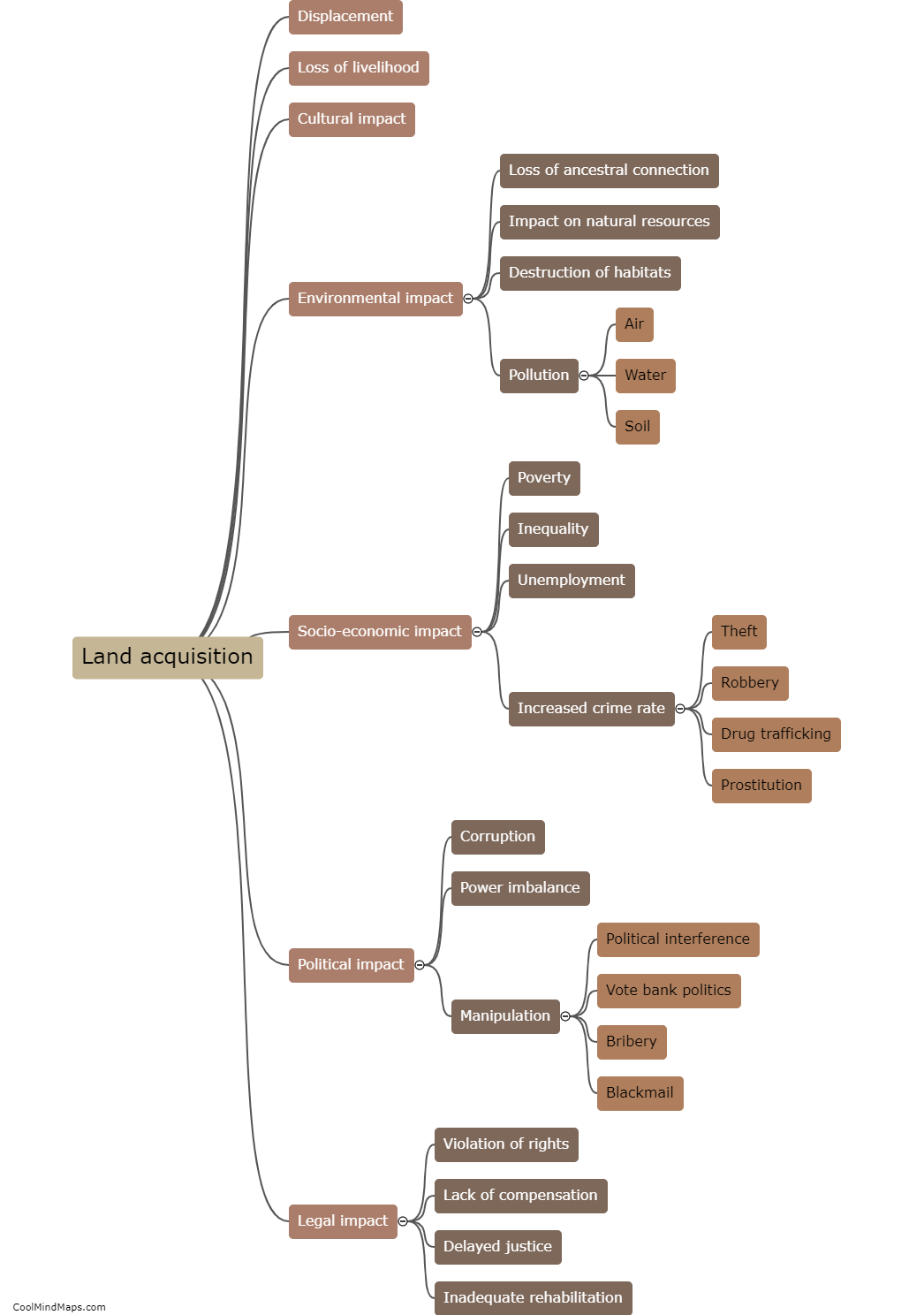What are the challenges faced in land acquisition for infrastructure?
Land acquisition for infrastructure projects can be a daunting task due to a number of challenges. Firstly, the process of identifying and acquiring suitable land can be time-consuming and complex, as it requires adherence to various legal procedures, including land surveys, title verification, and negotiations with multiple landowners. Secondly, resistance from local communities and stakeholders can pose significant challenges, as they may have concerns about displacement, loss of livelihoods, or environmental impacts. This can lead to protests, delays, and added costs for the project. Additionally, compensation and rehabilitation of affected communities is a major challenge, as it must comply with fair and equitable practices to ensure social justice. Lastly, issues related to land encroachments, land disputes, and unclear land ownership records can further complicate the acquisition process. These challenges require careful planning, stakeholder engagement, transparency, and effective management to ensure successful land acquisition for infrastructure development.

This mind map was published on 25 November 2023 and has been viewed 104 times.











